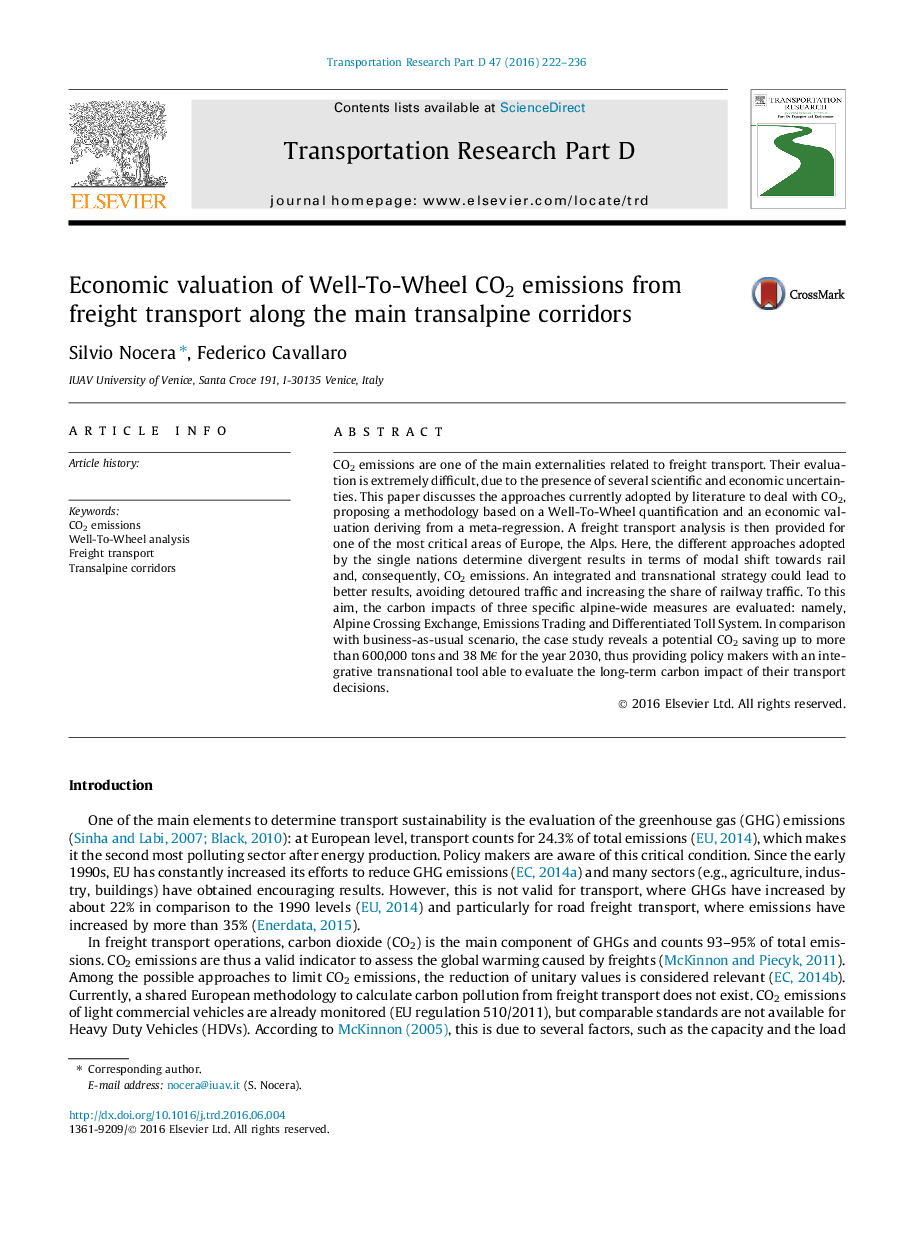| Article ID | Journal | Published Year | Pages | File Type |
|---|---|---|---|---|
| 7499645 | Transportation Research Part D: Transport and Environment | 2016 | 15 Pages |
Abstract
CO2 emissions are one of the main externalities related to freight transport. Their evaluation is extremely difficult, due to the presence of several scientific and economic uncertainties. This paper discusses the approaches currently adopted by literature to deal with CO2, proposing a methodology based on a Well-To-Wheel quantification and an economic valuation deriving from a meta-regression. A freight transport analysis is then provided for one of the most critical areas of Europe, the Alps. Here, the different approaches adopted by the single nations determine divergent results in terms of modal shift towards rail and, consequently, CO2 emissions. An integrated and transnational strategy could lead to better results, avoiding detoured traffic and increasing the share of railway traffic. To this aim, the carbon impacts of three specific alpine-wide measures are evaluated: namely, Alpine Crossing Exchange, Emissions Trading and Differentiated Toll System. In comparison with business-as-usual scenario, the case study reveals a potential CO2 saving up to more than 600,000 tons and 38 M⬠for the year 2030, thus providing policy makers with an integrative transnational tool able to evaluate the long-term carbon impact of their transport decisions.
Related Topics
Life Sciences
Environmental Science
Environmental Science (General)
Authors
Silvio Nocera, Federico Cavallaro,
